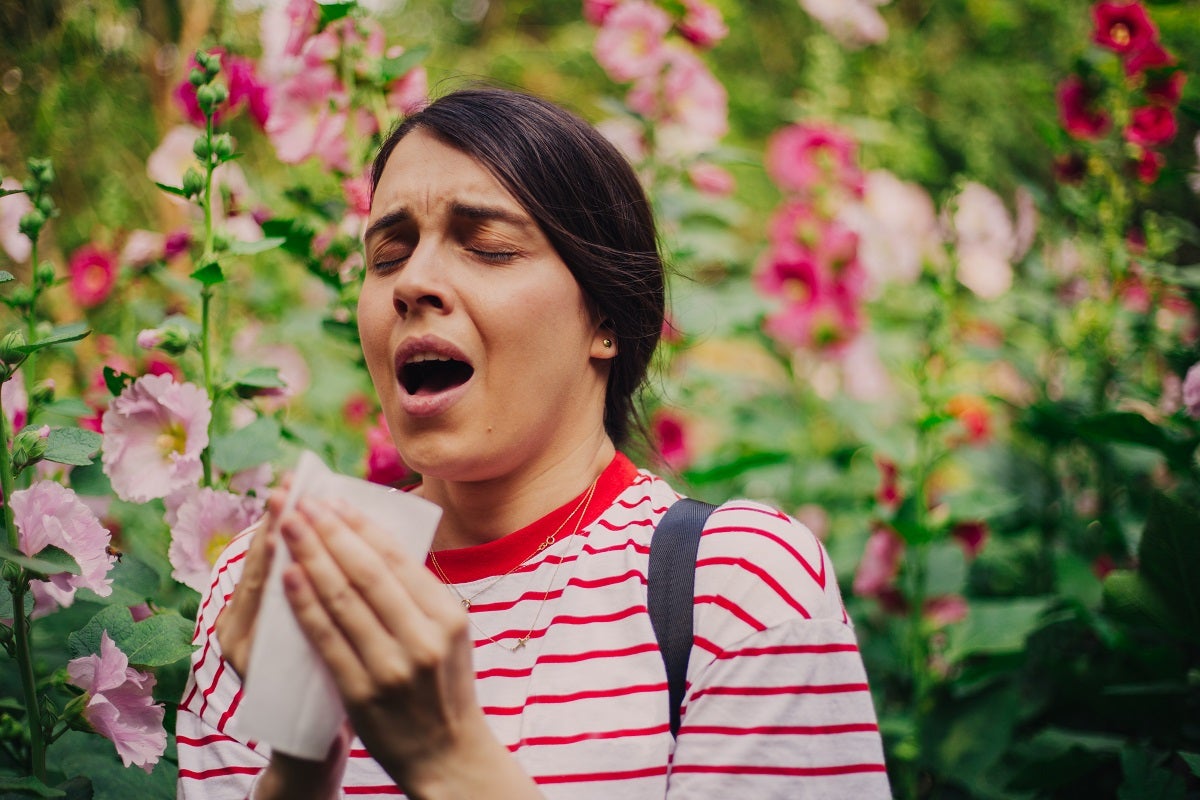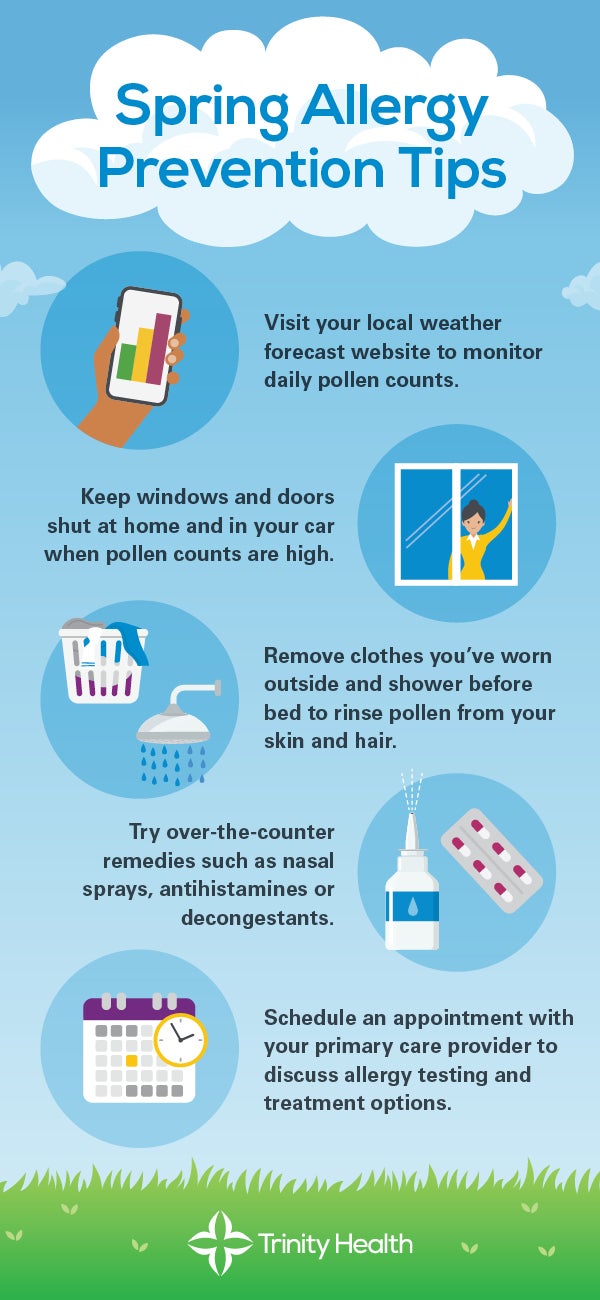How to Navigate and Prevent Spring Allergies
April 23, 2023
Categories: Community Health, Health & Wellness
Spring is a time to watch flowers bloom and listen to the familiar tune of chirping outside your window. Unfortunately for millions, it's also a season that brings runny noses, itchy eyes, and scratchy throats. Allergies can (and do) happen all year. When Spring begins, symptoms can start to interfere with your everyday life. If you're someone who experiences spring allergies, it's important to be informed about what causes them and how to manage them effectively.
What Cause Spring Allergies?
The biggest spring allergy trigger is pollen. Trees, grasses, and weeds release these tiny grains into the air to fertilize other plants. As a result, the immune system mistakenly sees the pollen as a danger and releases antibodies that attack the allergens. This ultimately leads the body to react with a runny nose, itchy eyes, and other symptoms that are all too familiar if you have allergies.
Spring Allergy Prevention Tips:
4. Clean Your Home Regularly
Regular cleaning can help reduce allergens in your home. Dust and vacuum frequently, and wash bedding and curtains in hot water to kill dust mites. Use a damp cloth to clean surfaces instead of a dry one, as this will help trap allergens instead of spreading them around.
5. Consider Allergy Medications
Over-the-counter allergy medications, such as antihistamines and decongestants, can provide relief from allergy symptoms.
If you aren’t finding relief with over-the-counter medications and other prevention tips, it may be time to talk to your provider to discuss next steps. There may be another reason for your symptoms or other medication or treatments to consider. Allergy testing may also be needed to figure out what specifically you are allergic to so that you can avoid the allergen.
Need Help with Your Allergies?
Schedule an appointment with one of our primary care providers to see how you can get relief from your allergies.





